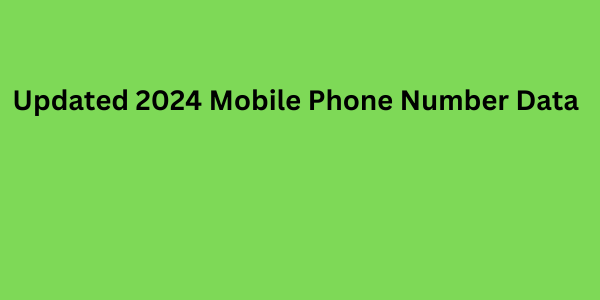Let’s clear it here and now.
Back to the true definition of SEM.
SEM is the combination of SEO and PPC to promote your website or brand by increasing your search engine visibility through paid and organic traffic.
So why is there confusion about what SEM means?
Because Wikipdia and some of the top resources on the subject define SEM as an Internet advertising model that brings paid traffic to your website tha updated 2024 mobile phone number data from search engines like Google. Bing, YouTube, Pinterest, TikTok, etc.
Look familiar? Because it is the exact same definition as PPC. Yes, we know it can be confusing. But that’s just how things have evolvd. Our industry is confuse by articles describing SEM as pay-per-click.
But in the early 2000s, search engine marketing, or SEM. Was all about combining SEO and PPC into one strategy. SEM was understood as a playground where SEO and PPC play together to benefit the entire marketing industry.
SEM is usd to cover all search engine optimization activities. Whether it was crawl optimization, paid listings or directory management. It covere all search engine marketing activities.
Essential stops in history
- The first CAPTCHA was introduce and use by PayPal in 2001.
- Google introducd the Google search engine in 2002.
- WordPress was release in 2003.
- Facebook starte in 2004.
- Google Maps was launche in 2005.
Everyone should collectively stop confusing SEM with its equivalent PPC. You need an SEM strategy to compete in today’s competitive marketing environment!
It’s similar to when some SEO professionals wante to change the name of SEO from “search engine optimization” to “search optimization how digital marketing works in online business development everywhere” or “search experience optimization”. But it didn’t happen.
In reality, SEM, PPC and SEO are just marketing today. The global SEO market is expectd to grow by $122.11 billion by 2028. That’s a big jump from $65 billion in 2016.
SEM ≠ PPC? A confusing history
SEM can revolutionize all areas of marketing. With artificial intelligence and automation the hottest topics of the day. PPC and SEO professionals will have fewer levers to use to control where money is spent.
And thanks to first-party data, SEM professionals tha bgb Directory will become less dependent on proxy numbers to support decisions. Companies will now have to rely more on individual expertise and understanding of how SEM fits into the big picture. SEM is the future of marketing.


